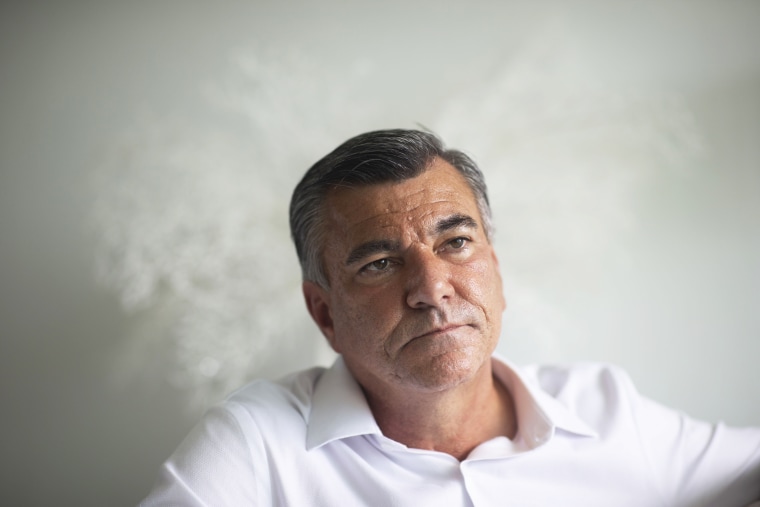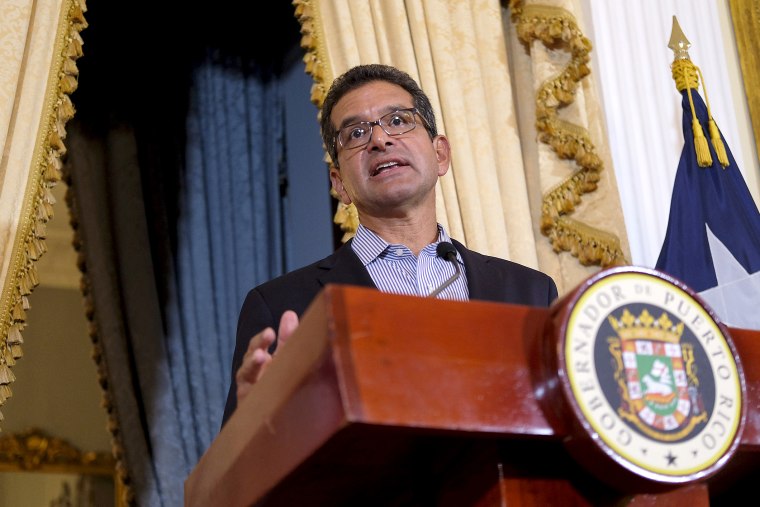Pedro Pierluisi, of the pro-statehood New Progressive Party, is leading the race to become Puerto Rico's governor by a small margin over Carlos "Charlie" Delgado of the Popular Democratic Party, which supports the island's current commonwealth status.
Pierluisi is ahead of Delgado by about 12,000 votes as of Wednesday morning, according to the Puerto Rico Election's Commission. With 95 percent of polling stations reporting, Pierluisi has 380,704 votes (32.4 percent) and Delgado has 368,369 votes (31.4 percent).
Pierluisi's victory margin would be the lowest of any winning governor in the territory’s recent history.
While the Elections Commission has not yet officially certified the results, Pierluisi declared victory Tuesday night saying he will work on expediting the disbursement of billions of dollars in federal funds assigned by Congress to help the island rebuild after Hurricane Maria—the deadliest U.S.-based natural disaster in 100 years, which led to the deaths of at least 2,975 people in 2017—and reform local government procurement processes to make them more effective and transparent.
Delgado responded by calling him “irresponsible,” adding that no victory should be claimed until all the votes are counted. If the difference shrinks to less than half a percentage point, it would trigger an automatic recount, according to Puerto Rico's new electoral code.
Because Puerto Rico isn't a state, islanders don't vote for president.

At 51.32 percent, Puerto Rico's voter turnout was even lower than the 55 percent in 2016, signaling dampened voter participation in an island that has seen historically high voter engagement rates.
The decrease in support is largely attributed to an extraordinary lack of trust in Puerto Rican government institutions that has made voters on the island feel disenfranchised over the past decade as they continue to reel from a 10-year recession while also working to get out of the largest municipal bankruptcy in U.S. history, according to Carlos Vargas-Ramos, a political scientist at the Center for Puerto Rican Studies at Hunter College in New York.
As the party in power for the past four years, the New Progressive Party fed that sense of distrust following failures in the local government's response to destructive earthquakes in January and the coronavirus pandemic—which followed the private chat scandal and historic protests that resulted in the resignation of pro-statehood governor Ricardo Rosselló last year.
The growing distrust resulted in voters being more critical of the partisan lines that have deeply divided the Puerto Rican electorate for more than five decades between the New Progressive Party, the Popular Democratic Party and a smaller percentage of "independentistas" from the Puerto Rican Independence Party, which advocates for the island's independence from the U.S.
The trend opened a pathway for new emerging political parties such as the Citizens' Victory Movement, which is running on an anti-colonialism ideology, and Project Dignity, which favors a Christian democracy, to gain ground in the Legislature as voters sought to degrade persistent partisan lines and force Pierluisi to work with a divided Legislature and overcome partisanship.
Three House representatives and two senators from the Citizens' Victory Movement were elected to the Puerto Rican Legislature as well as one representative and one senator from Project Dignity, according to the Puerto Rico Election's Commission as of Wednesday morning. This is the first election that both parties appear in an election ballot.
In addition to the governor's race, Puerto Ricans also voted in a nonbinding referendum that asked voters if Puerto Rico should "be admitted immediately into the union as a state?”
Fifty-two percent of the voters answered "yes" while nearly 48 percent responded "no," according to the Puerto Rico Election's Commission as of Wednesday morning. However, Congress would have to approve of any changes to the island’s territorial status.
“The people have declared that we no longer want this status,” said Pierluisi of the referendum results. “We want equality.”
Follow NBC Latino on Facebook, Twitter and Instagram.


